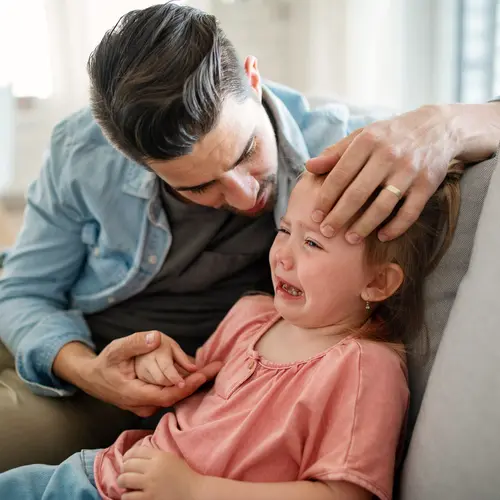Parents relish time with their kids. But you can overdo it. And that can be unhealthy for you and your children. So how do you find the right balance?
There isn't a set number of hours that qualifies as too much time together. Take a look at your routine. Are you spending close to every waking hour with your kids? Or every moment you’re not at work? Do they depend on you for everything, including their entertainment? Eventually, you’re going to burn out.
“Burnout is feeling overwhelmed and unfulfilled at the same time,” says Deborah Gilboa, MD, a parenting expert in Pittsburgh. “Look at the big picture and make changes.”
Marilena DeSantis of Manalapan, NJ, remembers when her two oldest children were small, and she worked nonstop to create picture-perfect, memory-inspiring activities. But she says it made them too dependent, and she felt that she was losing her identity. After her third child was born, DeSantis realized that her kids could spend time with her without being entertained.
“I need to let creativity, passion, and enthusiasm arise from them to create a more balanced life and self-confident children,” she says.
“You need to feel happy about your parenting, that parenting is something you want to do and that you are doing a good job,” says Brett Laursen, PhD, professor of psychology at Florida Atlantic University.
If you feel burnout creeping in, experts suggest that you:
Change the Structure of Your Togetherness
Have kids do some activities on their own; they’ll become more independent, even if you do “alone” activities together. Try reading in the same room or making dinner while your child colors at the kitchen table.
“It's healthy to be able to spend time alone,” says Daniel Blake, PhD, a clinical psychologist in Huntington Woods, MI. “Children develop a sense of security” from being together and alone at the same time, Blake says.
Set Boundaries
Have your kids go to bed at a reasonable hour; you'll all get a chance to recharge.
“If your 6-year-old is staying up until 10:30, of course you have no time for yourself,” Laursen says. “There's no down time.”
Agree to One Game
Parents who've spent hours playing may have trouble backing off, but it's important to teach children that you have other responsibilities.
“Be clear with your kids and yourself about what reasonable expectations look like,” Gilboa says. “When my son says, 'Play with me,' I say, 'I have to wash the dishes, check something online, and play with you. Would you like me to play first, last, or in the middle?'”
Focus on Family Moments
Deepen your connection by planning times to focus fully on your family. Schedule family dinners, game nights, trips to the park, and other simple activities.
“I'm a big believer of mealtimes together with no screen time,” Laursen says. “You would be surprised how many parents who make that rule then turn around and break it by picking up their own phone, answering emails, or turning on the TV. The rule has to be for everyone.”
Commit to Date Nights and 'Me' Time
Attending adults-only social events can help you regain your identity and boost your mood. Have a romantic date, go to a movie, reconnect with friends, or just spend time at home without the kids.
Can't afford a babysitter? Your parents might watch their grandkids. Or maybe you have a friend in a similar situation that would be glad to take turns with watching all the kids so the grown-ups can have some much-needed “me” time.
Forget parent guilt. “It's good for children to see that their parents have lives outside the family,” Blake says. “It's absolutely necessary. If you're not happy, that's what you'll be conveying to your child.”

